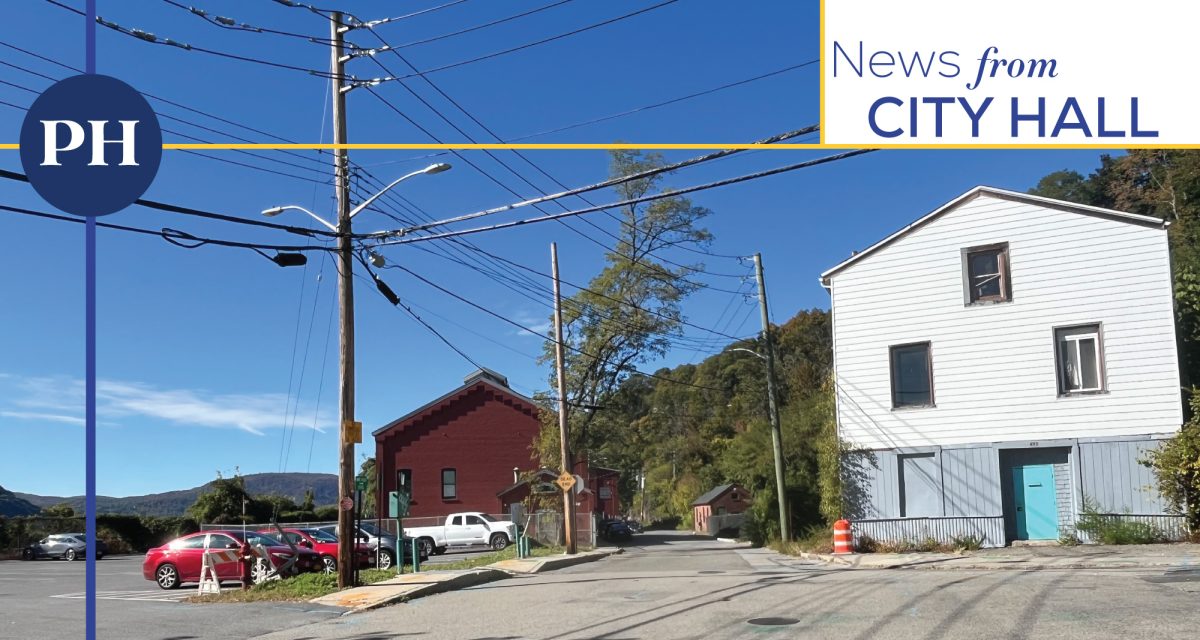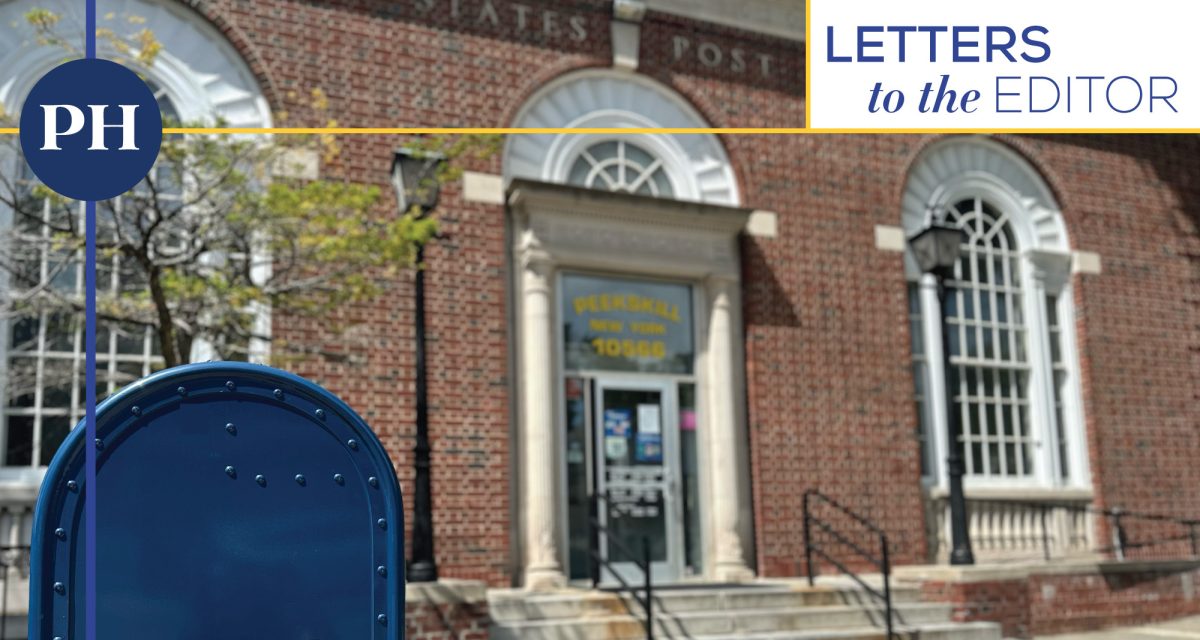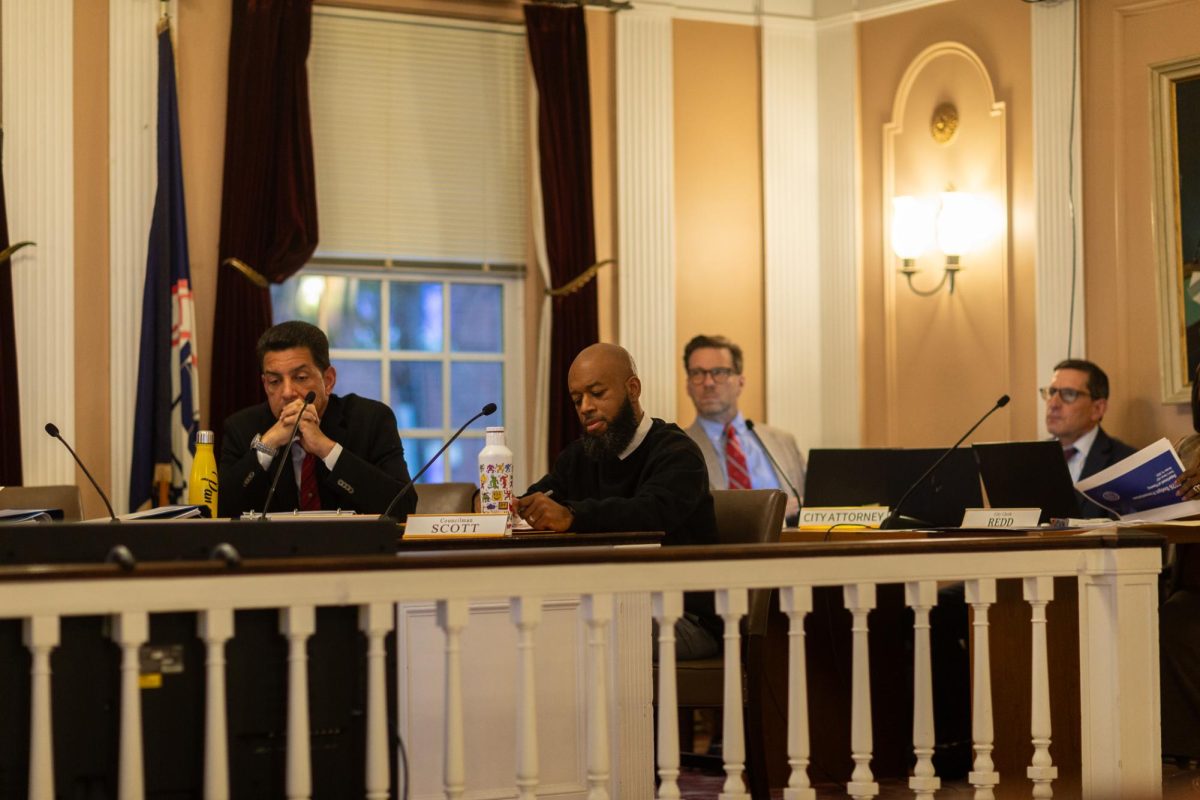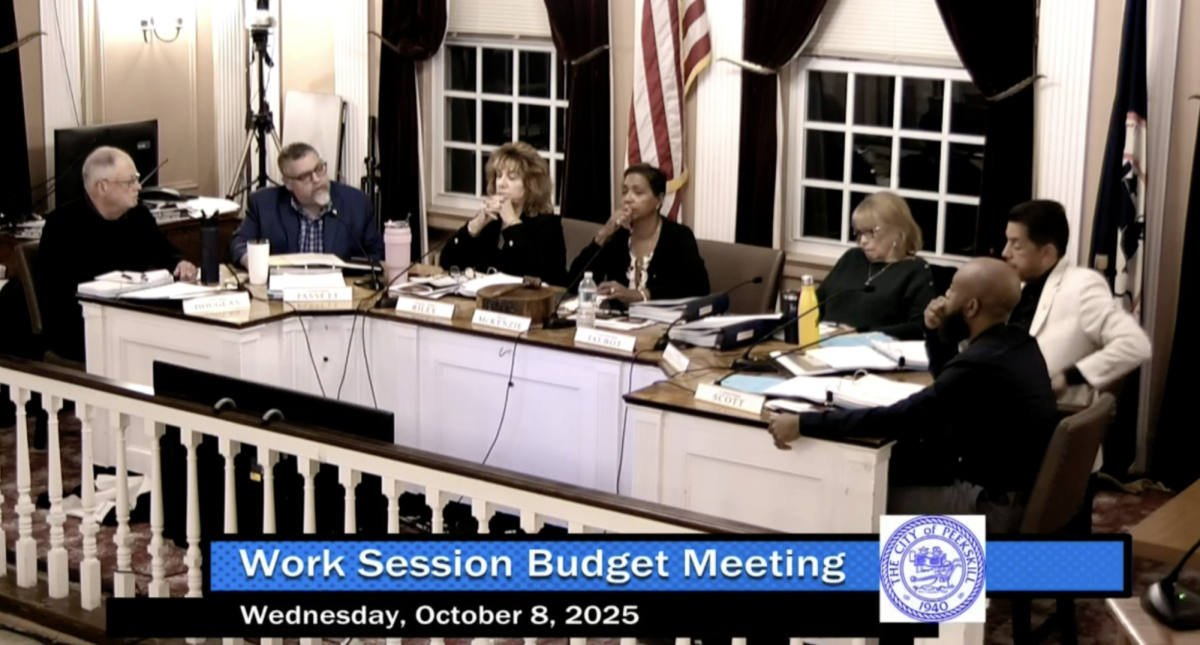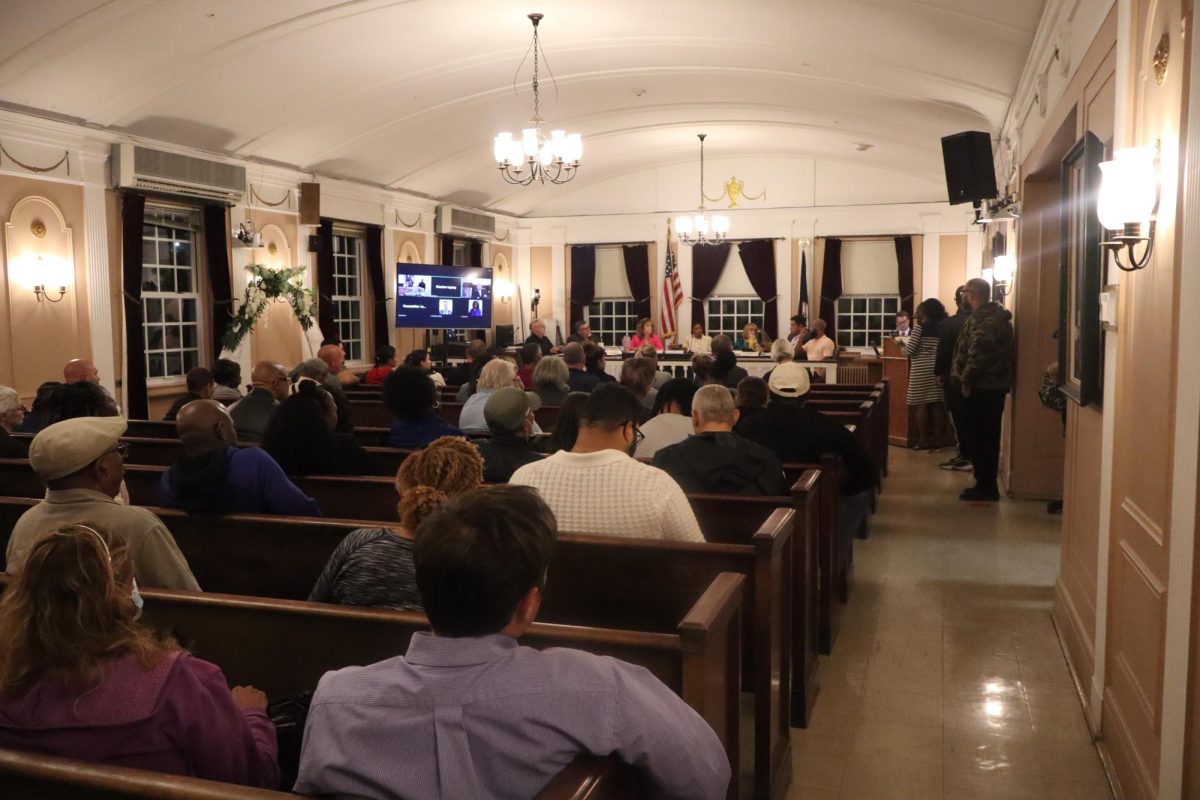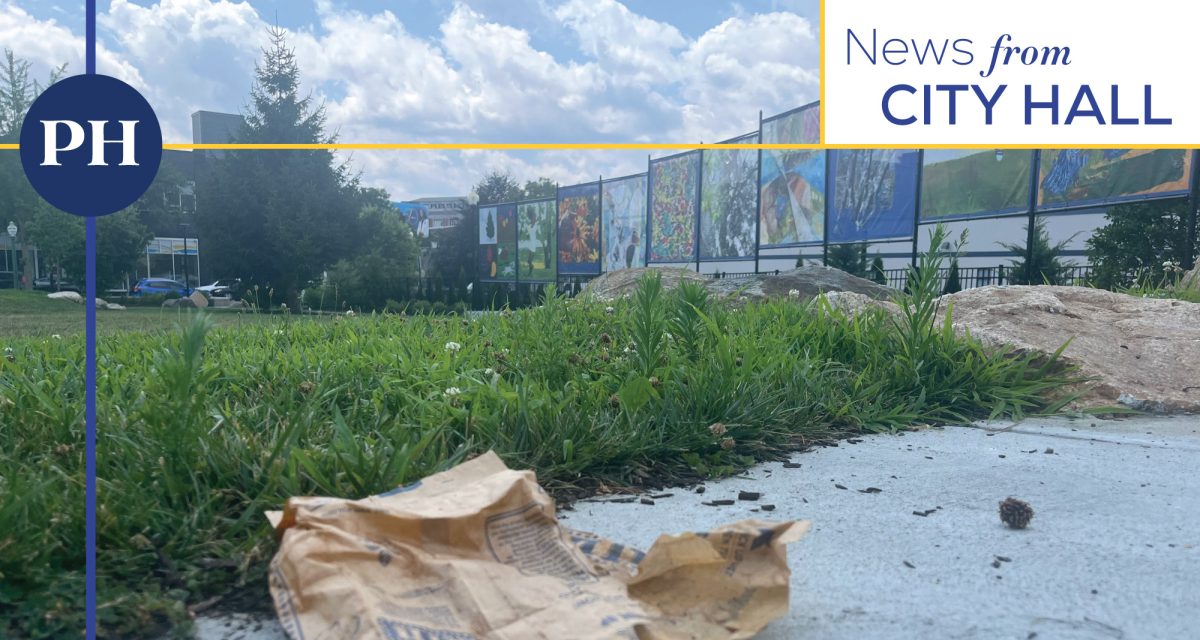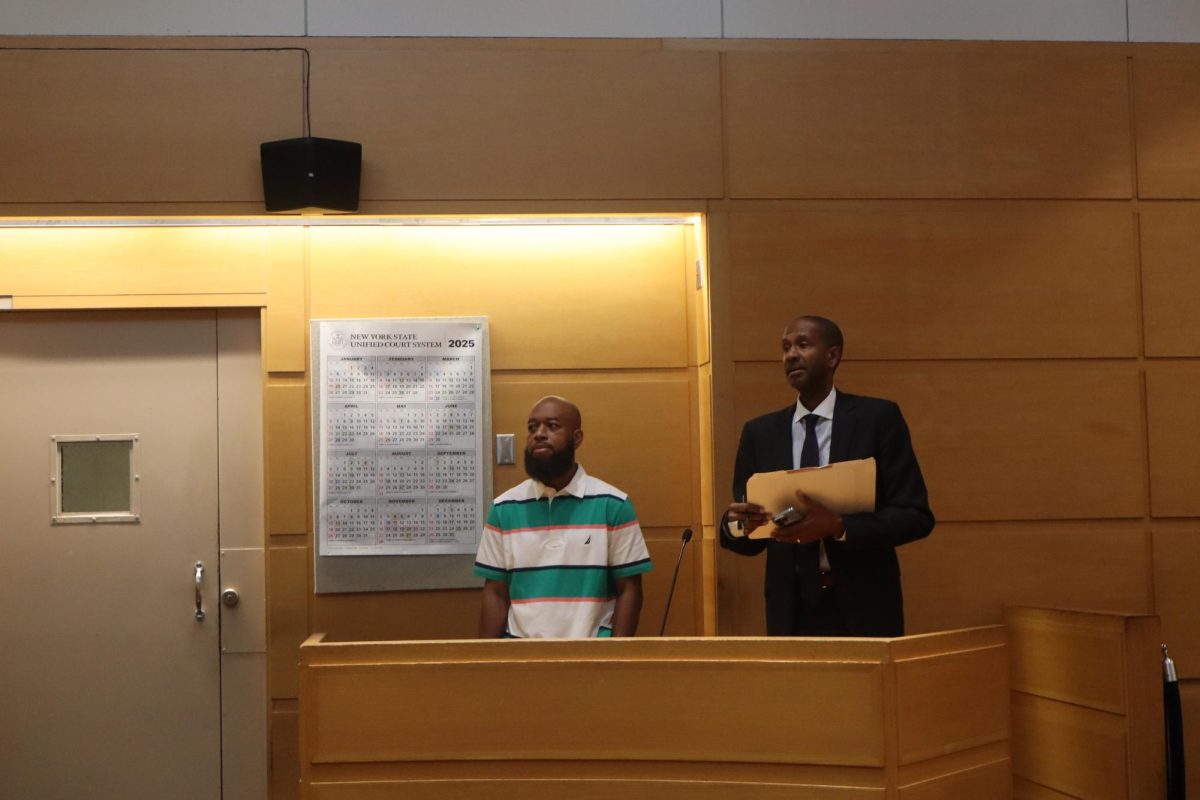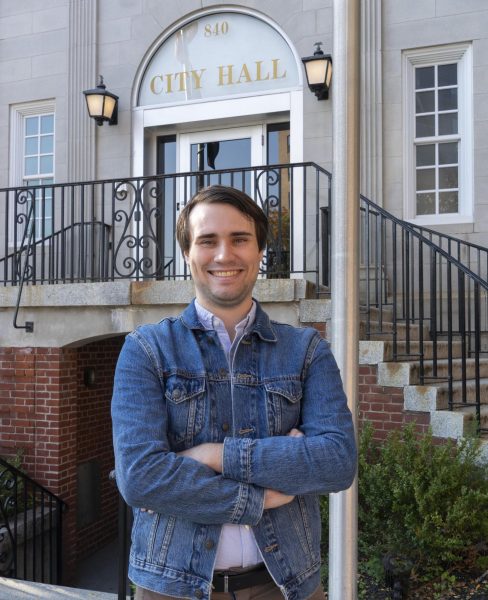In a recent survey, roughly one hundred Peekskill residents said that over the past ten years some of the greatest hazards they’ve experienced were extremely hot days, poor air quality, heat waves, and flooding.
That survey was conducted by the Center for Economic and Environmental Partnership (CEEP), which on Monday, April 7, presented the results to the Common Council. The survey informed an update on the City of Peekskill Climate Vulnerability Assessment and Adaptation Plan (CVAAP).
According to Program Coordinator Emma Kaminski, the CVAAP identifies the community’s assets, systems, and populations at risk from climate change and outlines strategies to help mitigate the impacts of climate change.
CEEP conducted research for the project from February 2024 to May 2024. Then, between June and September last year, CEEP reached out to Peekskill residents to better understand how climate disruption has impacted their lives.
Of the 143 survey respondents, over 75 percent were concerned about high energy costs due to extreme temperatures, over 70 percent were concerned about the risks to trees and wildlife, and over 60 percent were concerned with health risks associated with rising temperatures.
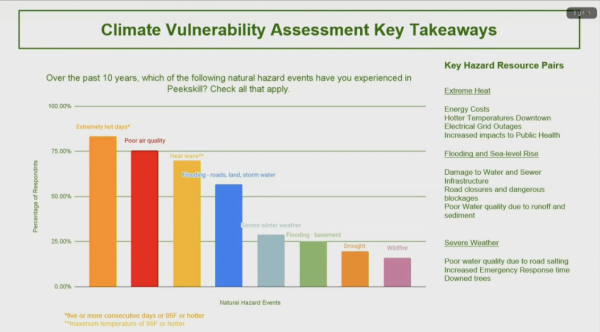
“Peekskill has an amazing Riverfront Park that’s a haven for locals and attracts visitors and tourists,” one anonymous respondent said. “Not to mention the train station also being there. The city should invest in shoring up the riverfront to withstand superstorms.”
CEEP developed a list of nine strategies that the city could implement to mitigate and adapt to the impacts of climate change. It was created collaboratively with input from the Conservation Advisory Council, city planners, the city manager’s office, police, fire, and water departments.
Strategies include public education, reviewing City Building and Zoning code, planning for green infrastructure and stormwater management, implementing a large-scale tree planting program, tree monitoring and maintenance, backup power for key emergency facilities, and microtransit and water transit.
Another strategy discussed by Janelle Koszarek, Executive Director at CEEP, was identifying a designated emergency shelter.
“Although the city has access to the Town of Cortlandt’s emergency shelter trailer, it is likely that this resource would be needed by the town itself during a large-scale regional disaster,” she said. “Therefore, it is critical for the city to establish its own resilience hub, a dedicated community center facility that can… provide essential services during times of crisis.”
She also discussed a strategy to create a map to identify areas of high social vulnerability within Peekskill, such as low income neighborhoods, locations in flood areas or in proximity to toxic release inventory facilities. It would also identify ages of infrastructure in the area.
Councilman Dwight Douglas said his personal experiences matched with the takeaways from the survey, but requested weather data to back up the perceptions. “There’s opinions and then there’s actual data,” he said.
Janelle Koszarek, Executive Director at CEEP, said they could pull data from weather in the region and share it with the city manager.
In addition to the climate survey results, there were three other presentations.
The Ecological Citizens Project provided an update on the community floating solar array project and requested public interest determination for installing the panels on the Camp Field Reservoir.
(Current city code does not permit solar panels on the reservoir and prohibits approval of a special permit. But the council may create an exemption for a project on municipal property, if it is expected to provide a public benefit, a precedent set in a previous case.)
Sustainable Westchester presented its annual overview of the Westchester Power Program, which the city recommitted to last June.
New City Parks highlighted expected funding for the Depew Park renovations. The organization hopes to break ground in 2026.
New location proposed for Peekskill Flea Market
After weeks of discussion, the Peekskill Flea Market is on the path to continuing.
At Monday’s Committee of the Whole, the Common Council was receptive to a proposed new location for the flea market by the Peekskill Business Improvement District (BID).
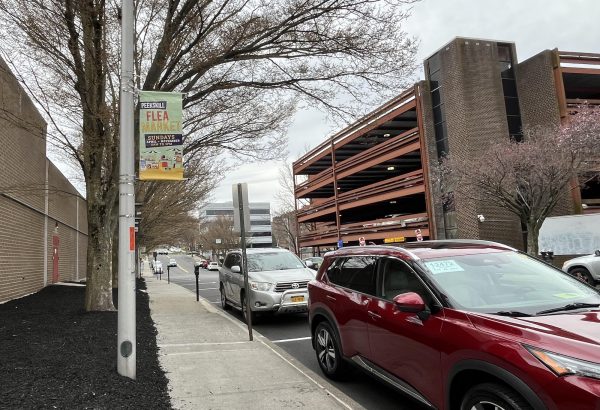
That new location voted on at last week’s BID meeting is on James Street, between Main and Park Streets. If the council passes a resolution at the April 14 meeting, then the weekly market will begin Sunday, April 20.
City Clerk Cassandra Redd said Chief of Police Leo Dylewski visited the proposed site and recommended signage similar about the flea market on Bank Street and barrels at the intersections for James and Main, James and Park, and the James Street Garage exit.
The new location is one block away from the previous Bank Street site and is still downtown and in the BID.
The proposal follows a meeting on March 24 in which 20 people voiced their opinion on the flea market’s Bank Street location, including about a dozen who voiced a variety of concerns that included insufficient parking, competition from vendors selling new items, and litter.
Several other locations were considered including the Peekskill High School parking lot, the top of James Street Garage, Brown Street, and South Street from Depew to Washington Streets. Ultimately, the proposed location from James Street from Main and Park Streets was the only viable location, said Executive Director of the BID, Bill Powers.
Powers said the board felt compelled to keep the market downtown to ensure an estimated 2,000 weekly visitors come to the city while honoring the wishes of Bank Street business owners who opposed the market.
“It’s slightly longer than Bank Street, so we can accommodate almost the same number of vendors,” Powers said. “It’s also just one block over, so that people who were used to coming to Bank Street can probably find it pretty easily.”
Powers said that the BID will continue to work with the city to address the parking and trash issues that were brought up, though added he didn’t believe they were directly related to the flea market.
Mayor Vivan McKenzie thanked Powers and the BID for listening to the concerns and trying to come up with a viable solution.
“I do think that moving this there will actually bring some life and foot traffic to some of those restaurants in that area,” McKenzie said. “For Dunkin Donuts, for Azteca Deli, for the Jamaican restaurant… I think it brings more opportunity for people to have other places to eat and pick up things and yet still be close in the downtown to visit all the other vendors and stores.”
Council talks future capital purchase plan of over $8 million

There is a lot of spending in the City of Peekskill’s future.
Council members discussed capital plan expenses of over $8.2 million across the Department of Public Works, Police Department, Water & Sewer Department, and Recreation & Seniors, as well as Nelson and James Street Garage and Police Station improvements.
The list includes items from the 2025 Capital Plan in the 2025 Adopted Budget. City Manager Matthew Alexander requested the council approve a capital lease for $3.063 million for the vehicles and equipment, as well as a bond resolution for $5.2 million for the buildings and grounds improvements.
Alexander also said the city will need to look at short term funding for $20 million, in order to move forward with Momentum Fund projects. Last year, the city was awarded the $10 million grant to renovate and expand the Nelson and James Street Garages. The grant structure requires a 50 percent match, and will disburse funds only after projects are started, so the city needs to acquire all $20 million of funding up front.
The Department of Public Works is requesting funds for 19 items at a total of $2.490 million of equipment and vehicles including a 4×4 snow plow, a mini packer garbage truck for parks, sanitation garbage trucks, a 5500 dump truck, and six garbage AI cameras.
Three of the items deemed a priority, according to Director of Public Works Christopher Gross, would not be delivered until 2026 or later, with the other 16 requested to be ordered and delivered in 2025.
Mayor McKenzie requested Gross to provide more information: a prioritized list of capital needs, with expected costs, lead times, and usable life before the council could authorize any purchases
“I have a wish list, we all have wish lists,” McKenzie said. “Every department has a wish list of things that we want, but we need to know what you really need first…”

The Department of Nutrition is seeking approval to spend about $160K on a 40-passenger bus to support expanded transportation services for the city. Site Manager and Community Hub Director Johnathan Zamora described a lease-to-purchase program, which would result in monthly payment of $2,750 for 5 years. The program would provide a substitute vehicle when repairs or maintenance is required on the primary bus.
Zamora noted that to meet the yearly summer camp transportation demands, the city spends $16,500 to rent buses for six weeks.
This year, the city budgeted $50K for summer camp bus rental. However, the YWCA is covering camp transportation costs, so Zamora proposed using the budgeted amount to support the first 1.5 years of payment on the lease-to-own vehicle.
Councilwoman Kathleen Talbot and Councilman Ramon Fernandez had some reservations about this expenditure while Deputy Mayor Patricia Riley and Mayor Vivan McKenzie were in favor of expanding transportation access.
The Peekskill Police Department requested three items at a total of $392,618 including an OEM Vehicle, three 2023 Ford Interceptor Utility vehicles and a computer for a vehicle. In his memo to the council, Alexander lists $1.4 million for “police station improvements,” without further details.
A $520K grant for expanding and modernizing the police station was previously touted by U.S. Rep. Mike Lawler, but was left out of the federal government spending bill, which Lawler voted for.
City Manager Alexander said it was better to package all the department’s funding requests into one consolidated purchase plan, to avoid paying finance fees on separate leases.
Other noteworthy agenda items from the meeting included the Planning Department organizing outreach activities to solicit public input on the Civic Hub and Connectivity Project including an open house on April 26 and April 27, and a request from the city attorney to adopt a resolution to allow expansion of James Street Garage from 514 parking spaces to 633 because of its perceived public benefit. Current city code prohibits such a project.
The city is requesting council authorization to consider proposals on three city-owned surface parking lots at the waterfront for transit-oriented development. A memo from the Department of Planning and Development said the city has determined that certain aspects of the development projects must be considered cumulatively for the purposes of State Environmental Quality Review (SEQR). A resolution authorizing a request for proposals to assess the environmental impacts of the three projects will be on the April 14 agenda.
There will be two public hearings next week on April 14 including one on a proposed law expanding the ban on outdoor smoking in certain public places and another on proposed taxi fare rate increases.




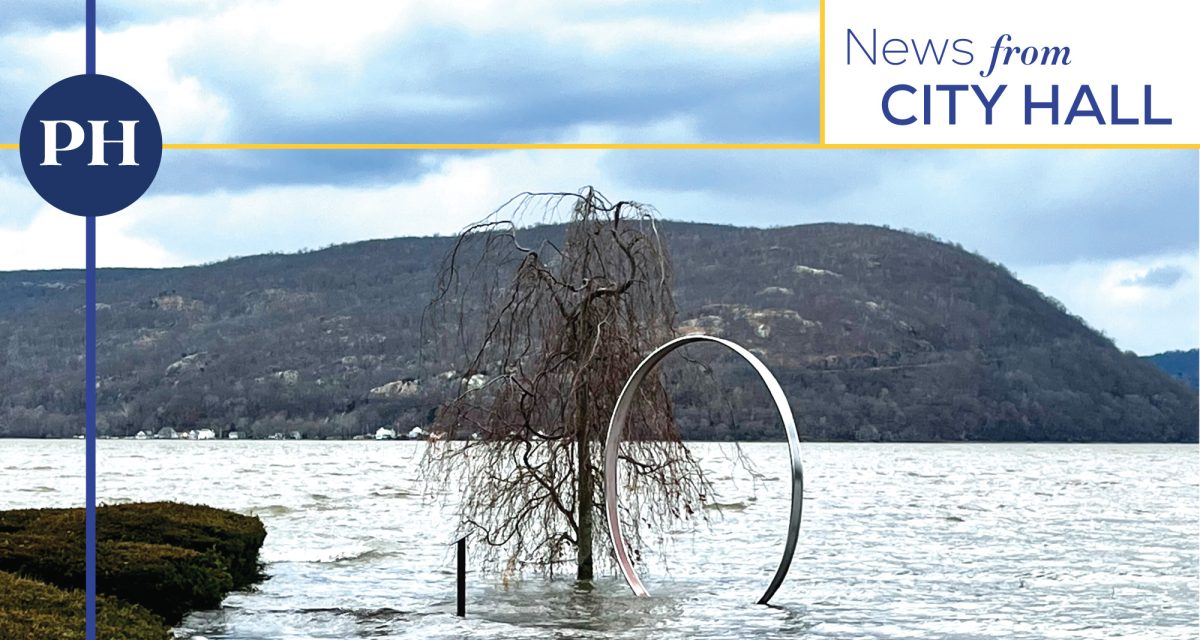


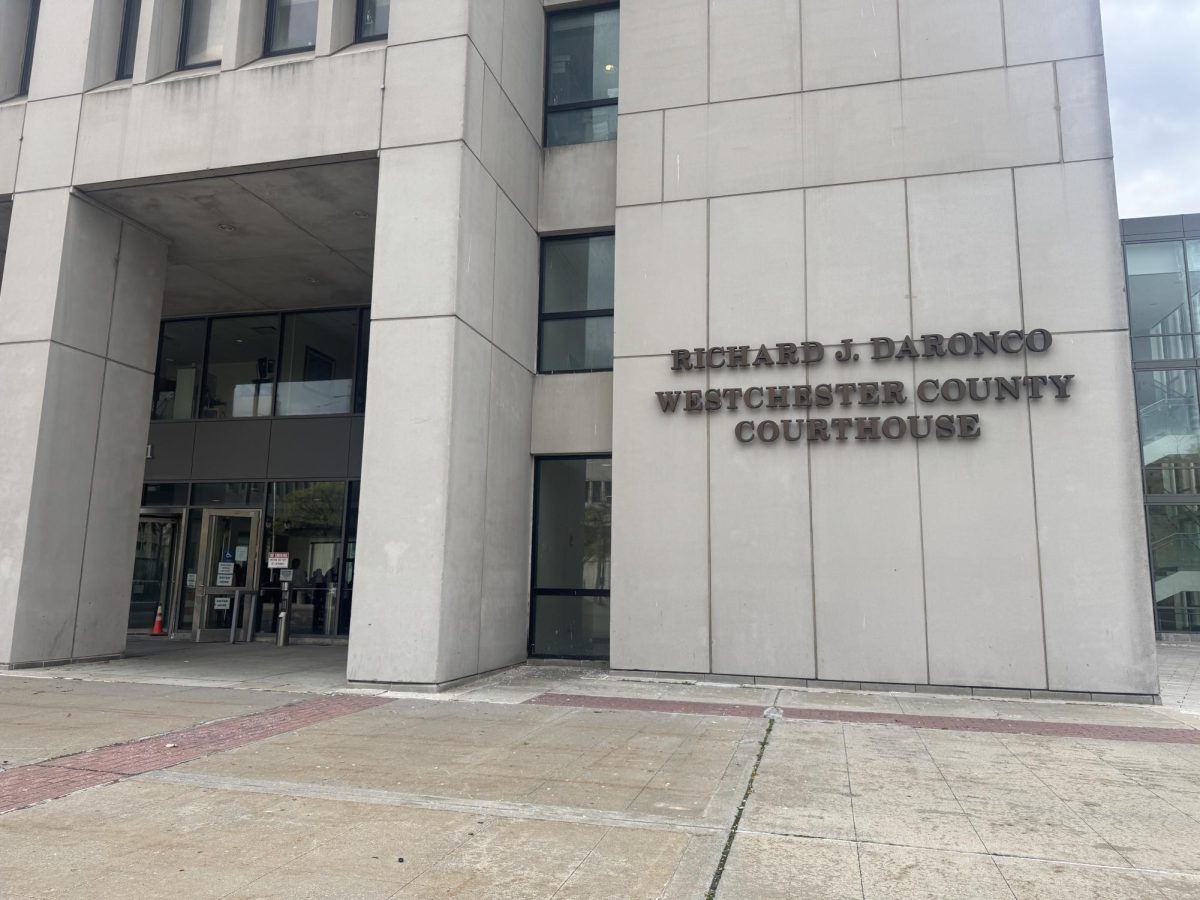


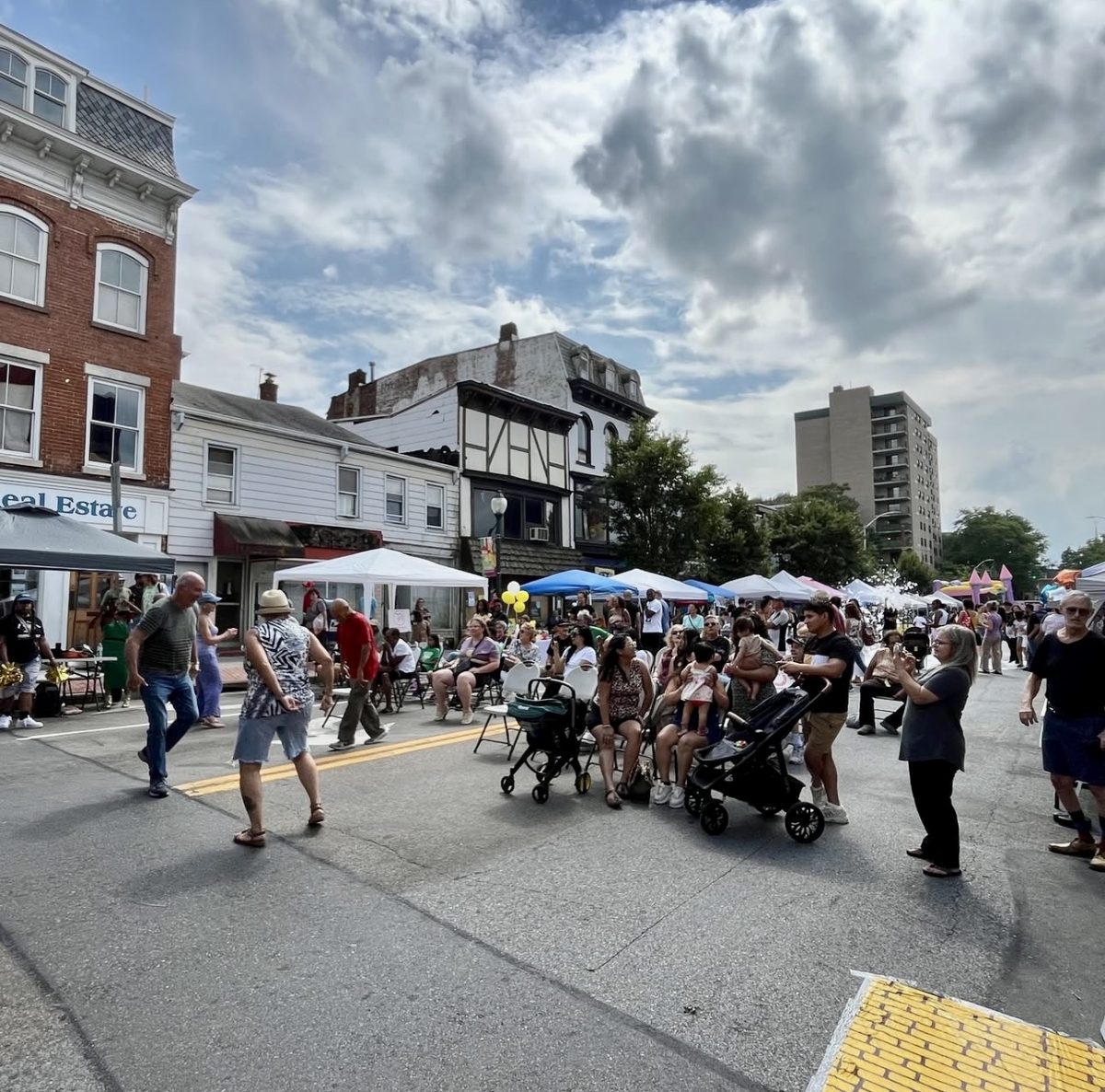

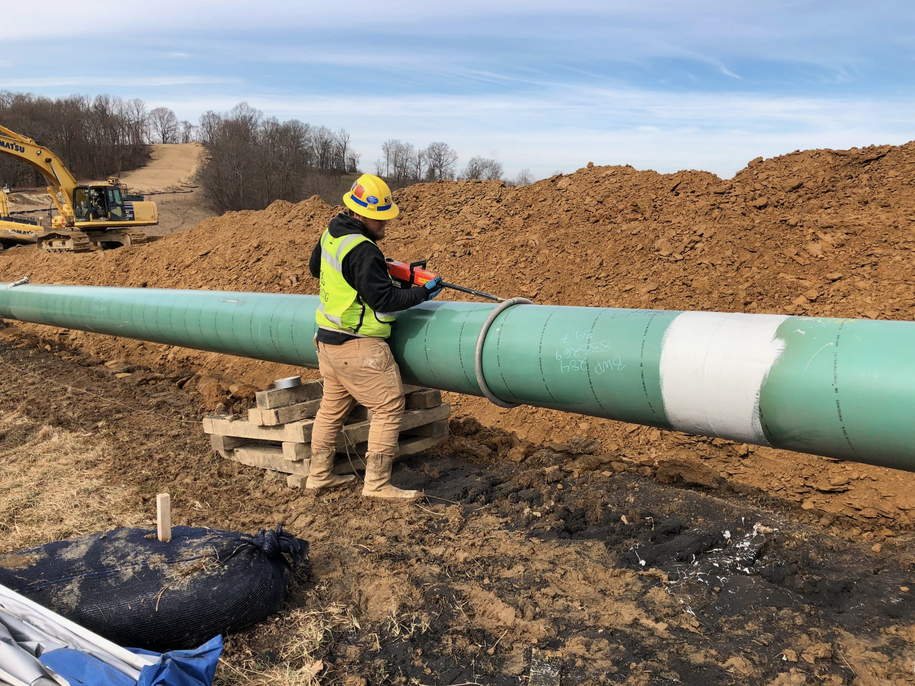

![Peekskill girls volleyball in action against Fox Lane on Oct. 16. (Peekskill City School District]](https://peekskillherald.com/wp-content/uploads/2025/10/Lead-photo-6-1200x640.jpg)
